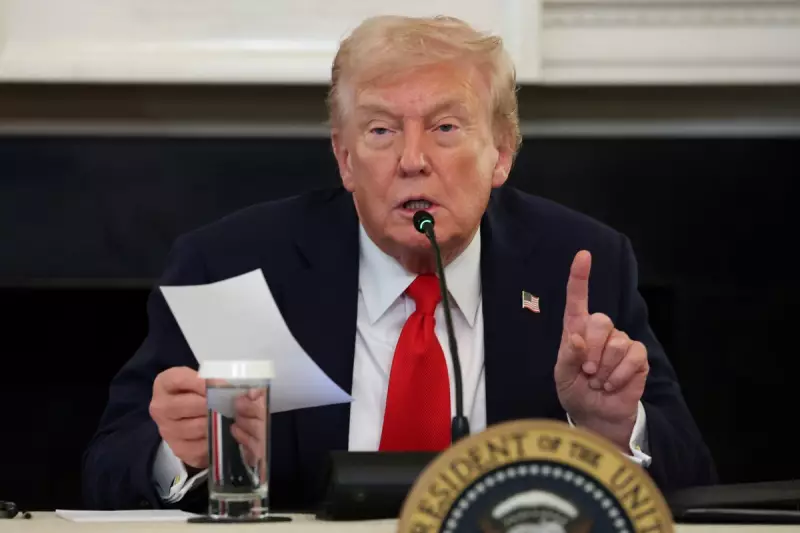
In a move that has sent shockwaves through international political circles, former US President Donald Trump has declared his intention to designate the anti-fascist movement Antifa as a terrorist organisation. This controversial decision emerged during a heated roundtable discussion at the White House, raising significant concerns among UK civil liberties experts and political observers.
What Exactly is Antifa?
Antifa, short for 'anti-fascist,' represents a decentralised movement of activists and groups united by their opposition to far-right ideologies and white supremacy. Unlike traditional organisations, it operates without formal leadership or membership structure, making the terrorist designation particularly problematic from a legal standpoint.
Why This Decision Matters for the UK
British civil liberties organisations are watching developments with growing apprehension. The precedent set by designating a political movement as terrorist could have far-reaching implications for protest rights and free speech protections in democratic societies worldwide.
Legal experts warn that such classification blurs crucial distinctions between organised violent groups and political movements, potentially criminalising legitimate dissent and protest activities.
The Context Behind Trump's Announcement
The declaration came amid widespread civil unrest following the death of George Floyd, with the administration seeking to frame anti-fascist activists as central instigators of violence during protests. However, this characterisation has been challenged by law enforcement officials and intelligence reports that paint a more complex picture of demonstration dynamics.
Potential Consequences for Democratic Freedoms
- Criminalisation of political ideology rather than specific criminal acts
- Erosion of protections for legitimate protest movements
- Creation of dangerous legal precedents that could be exploited by other governments
- Chilling effect on free speech and assembly rights
As this situation develops, UK policymakers and human rights advocates continue to monitor the implications for democratic freedoms on both sides of the Atlantic. The debate highlights ongoing tensions between national security concerns and the fundamental rights to protest and free expression in modern democracies.






